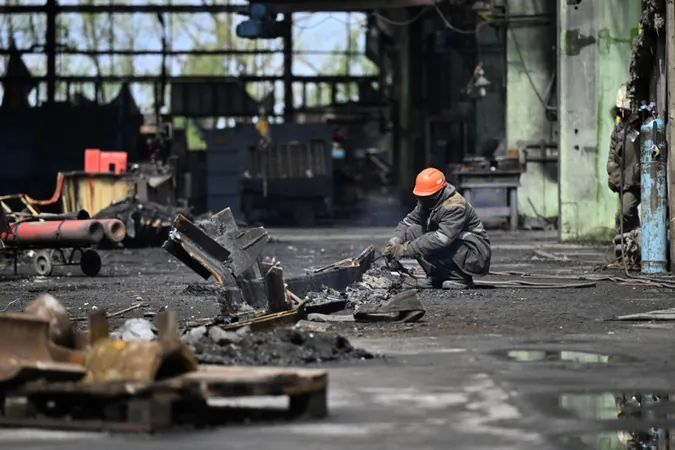
Scientists Push for Official Recognition of the Anthropocene Epoch: A Time for Change
2025-03-25
Author: Jacob
Introduction
In a groundbreaking assertion, experts are advocating for the formal recognition of the Anthropocene, a term suggesting that humanity has entered a new geological epoch defined by significant human impact on the Earth. The concept initially proposed by atmospheric chemist Paul Crutzen and biologist Eugene Stoermer in the year 2000 signifies a critical turning point in Earth's geological timeline, marking the end of the Holocene epoch.
Debate and Evaluation
Despite the compelling evidence supporting this claim, the International Union of Geological Sciences (IUGS) recently chose not to recognize the Anthropocene as the current geological epoch, sparking debate among scientists. In light of this decision, a group of researchers has published a commentary urging that the Anthropocene merits another evaluation for epoch status.
Arguments for Recognition
One of the principal arguments presented by scientists, including McCarthy et al., challenges two common criticisms: the relatively short duration of the proposed Anthropocene, which began roughly 72 years ago, and the assertion that geological epochs should span millions of years. They contend that the degree and rapidity of changes instigated by human activity, particularly since the mid-20th century, render the traditional timeframes irrelevant. With energy consumption surging sixfold over the past several decades, the resulting transformations—such as rising global temperatures, melting ice sheets, and biodiversity loss—underscore the significant and lasting impact of humanity on the planet.
Political Considerations
Moreover, the authors argue that labeling the Anthropocene as a politically charged notion overlooks the undeniable data substantiating this epoch's emergence. They assert that disregarding critical evidence to maintain the status quo is, in itself, a political act. Furthermore, the scientists express discontent with the notion that the classification of our current epoch is set in stone for the next decade, emphasizing that ongoing scientific inquiry should continually shape our understanding of geological time.
Broader Implications and Conclusion
As it stands, the conversation surrounding the Anthropocene is gaining momentum, reflecting broader concerns about climate change, environmental sustainability, and humanity's role in shaping the Earth’s future. Recognition of the Anthropocene could catalyze important discussions and actions regarding environmental stewardship and terrestrial justice.
As per expert views, the window for acknowledging this human-centric epoch is closing, and the geological sciences must evolve to reflect the realities of human impact. The appeal for the Anthropocene's recognition highlights an urgent need for an updated understanding of our relationship with Earth—one that recognizes our profound influence and imperative to protect and sustain it for generations to come.









 Brasil (PT)
Brasil (PT)
 Canada (EN)
Canada (EN)
 Chile (ES)
Chile (ES)
 Česko (CS)
Česko (CS)
 대한민국 (KO)
대한민국 (KO)
 España (ES)
España (ES)
 France (FR)
France (FR)
 Hong Kong (EN)
Hong Kong (EN)
 Italia (IT)
Italia (IT)
 日本 (JA)
日本 (JA)
 Magyarország (HU)
Magyarország (HU)
 Norge (NO)
Norge (NO)
 Polska (PL)
Polska (PL)
 Schweiz (DE)
Schweiz (DE)
 Singapore (EN)
Singapore (EN)
 Sverige (SV)
Sverige (SV)
 Suomi (FI)
Suomi (FI)
 Türkiye (TR)
Türkiye (TR)
 الإمارات العربية المتحدة (AR)
الإمارات العربية المتحدة (AR)